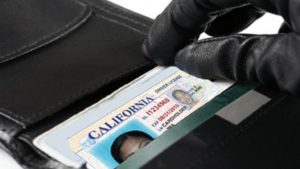During National Consumer and Protection Week, national nonprofit American Consumer Credit Counseling provides Los Angeles consumers with tips to minimize the threat of identity theft.
Los Angeles, CA – March 6, 2015

According to the Federal Trade Commission, identity theft occurs when someone steals your personal information and uses it without your permission. The problem topped the FTC’s national ranking of consumer complaints in 2014 for the 15th consecutive year. The issue has become a rising problem in California, which ranked seventh in the country in identity theft complaints in 2014, according to the Consumer Sentinel Network. Over 14,000 of those incidents came from Los Angeles, making it one of the most at risk cities in the country. Thousands of these thefts were committed through the internet or email.
“As the number and value of mobile devices and tablets continue to grow, digital identity theft has become one of the fastest growing crimes in America,” said Steve Trumble, President and CEO of American Consumer Credit Counseling. “The best piece of advice for any consumer to ensure that they do not fall victim to digital identity theft is to keep your device close at hand. This will prevent anyone from picking up your gadgets and stealing your information.”
American Consumer Credit Counseling has identified five steps to help consumers protect themselves from digital identity theft:
- Secure your devices – Never leave your mobile device or laptop by a window, visible in a car or sitting in a gym locker. If you have to leave your laptop, smart phone or tablet, make sure it is locked away where no one can see it. When in public, make a habit of using a cable lock to secure your laptop to a strong, unbreakable object that won’t move. For cell phones and tablets, use passwords to prevent unauthorized access to your data.
- Register your devices with their manufacturers – Registering your digital device will “flag” a product and a manufacturer will have record of it if it is ever sent in for service increases.
- Review your online credit cards statements carefully – Make sure you recognize the merchants, locations and purchases listed before paying the bill. Contact your creditor if you notice any suspicious activity on your statement.
- Back up your data – By backing up your data, you will have saved your records, even if your device is stolen.
- See how safe a site is before you click – The best way to avoid scams and sketchy sites online is to never visit them. Be wary of sites making offers that seem too good to be true, or ask you for sensitive, personal information like banking and credit card account numbers. Unsafe sites may also feature intrusive ads and pop-up windows.
“As more and more consumers turn to the web for their online banking and purchases, the opportunity for identity theft increases exponentially,” said Trumble. “The key to avoiding digital identity theft is knowing how to secure your online information.”
ACCC is a 501(c)3 organization, that provides free credit counseling, bankruptcy counseling, and housing counseling to consumers nationwide in need of financial literacy education and money management. For more information, contact ACCC:
- For credit counseling, call 800-769-3571
- For bankruptcy counseling, call 866-826-6924
- For housing counseling, call 866-826-7180
- Or visit us online at ConsumerCredit.com
About American Consumer Credit Counseling
American Consumer Credit Counseling (ACCC) is a nonprofit credit counseling 501(c)(3) organization dedicated to empowering consumers to achieve financial management and debt relief through education, credit counseling, and debt management solutions. In order to help consumers reach their goal of debt relief, ACCC provides a range of free consumer personal finance resources on a variety of topics including budgeting, credit and debt management, student loans, homeownership, identity theft, senior living and retirement. Consumers can use ACCC’s worksheets, videos, calculators, and blog articles to make the best possible decisions regarding their financial future. ACCC holds an A+ rating with the Better Business Bureau and is a member of the Association of Independent Consumer Credit Counseling Agencies. For more information or to access free financial education resources, log on to ConsumerCredit.com or visit TalkingCentsBlog.com.

